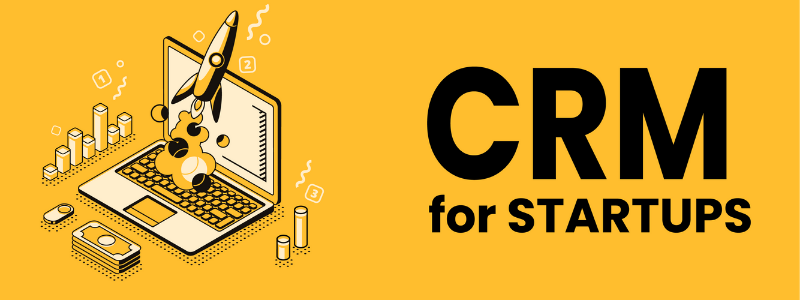“Do not use a cannon to kill a mosquito” – Confucius
There are two key words right up there in the title of this post. Startups and Salesforce.
Startups are usually juggling a million things at the same time. Establishing Product-Market fit, building the product while supporting their first few clients, making do with largely non-existent or chaotic processes, and saving every dollar they can (I am not talking of VC fuelled lucky few) while building out their dream.
Salesforce is a Giant (with a capital G). It is a huge corporation, which builds a complex suite of products that cost a bomb and need additional investment in serious expertise to use effectively. Salesforce CRM applications are not really designed for small businesses. It is an excellent application, it does a lot of things very well, but it only makes sense when you are doing those things at scale.
One would assume – never the twain shall meet.
It still amazes me how often startups just pick up Salesforce as the default go to CRM solution. It is when the first few invoices hit the (maxed out) credit card, that they realize just how expensive that decision can be. More often than not companies just building out their sales and marketing functions will find little or no use for a vast majority of the capabilities that Salesforce provides them – at a steep cost.
So you think, “Okay wise guy, I can see you are yet another CRM vendor who claims Salesforce isn’t the right choice. What then?”
Short answer: It depends.
To get to the nub of the argument, we need to break it down into a few basic questions that one needs to answer.
- What exactly is CRM in the context of startups? (short answer: it’s complicated)
- Can a startup just not have a CRM and save a bundle? (short answer: not really)
- What are good questions to ask when selecting a CRM solution? (short answer: very good question. There are three.)
Grab a can of your favourite drink and settle down. We are going to meander a bit and try to cut through a whole lot of clutter around the notion of CRM and its utility.
What exactly is CRM in the context of startups?
CRM stands for Customer Relationship Management. The problem is, most people focus on ‘Management’ while ignoring the thing that really matters – Customer Relationship. This is why often the argument devolves into the merits, or lack of them, of one technology solution versus another.
CRM software is not what drives your relationship. That job is entirely yours.
Now let us define what a customer is in the context of a startup. It is unlikely that you have a lead database with tens of thousands of contacts, have thousands of paying customers and dozens of sales and marketing professionals spread out across the globe running sophisticated acquisition strategies.
(If you do, please stop reading this post right now and explore the full range of capabilities of Vtiger All-In-One edition. We would love to have you as a paying customer. I promise – This is the only sales plug in this post.)
Chances are you are having daily interactions with a handful of early adopters. These interactions are not just transactional, they are transformational. Your product is being refined based on those conversations. All your focus is on getting your product-market fit right.
Those conversations, the leads you get through referrals and early adopters, are gold. The last thing you want is to lose customer data or drop the ball on closing deals because the information was scattered on post-it notes or in one of the dozen spreadsheets you created.
Let’s face it. In a startup, chances are you a founder-head of sales-one person marketing team and a friendly support agent all rolled into one. If you have a couple more warriors alongside you, Congratulations – you can afford to get a few hours of sleep.
Is a complex software with a steep learning curve the right choice in this situation? If you get your kicks out of figuring the innards of enterprise grade applications then something like Salesforce might work for you. If you are someone like me, you want to focus on the relationship and not the tool managing it.
So let me come back to my earlier short answer to this question. What CRM is, in your context, is complicated. It is entirely up to you. If you think customer centricity is important and want to build a solid foundation for your business, treat customers with the respect they deserve and get a CRM tool.
Can a startup just not have a CRM and save a bundle?
This is a very popular question. Why bother with yet another piece of software and that too one that just seems to be a glorified contact management tool. Spreadsheets seem to do the job very well.
Spreadsheets are quite useful. They are designed for number crunching and data manipulation. With a little bit of pain you can even build fairly sophisticated data models and run Goal Seek analysis for your Billion dollar ARR projections.
But designed for real time collaboration and historical data tracking they most definitely are not! And the less we talk about data security in spreadsheets the better.
In my early startup days, we only had a few dozen customers, paying us very little in the way of real money. What we valued infinitely more was all the feedback they patiently gave us on the product, the processes and our sales pitch as we struggled through the challenges of building out our company. I wanted all my teams to have the customer information they needed, when they needed it and without having to go through hours of training to figure it all out. We used a free cloud based CRM. It got the job done, got it done efficiently and didn’t cost us anything.
At the very least, it will keep all your customer data centralized and in a safe place. A good one will even give you insights and be an excellent companion in your sales process as you build it out.
You might save a few dollars a month by not investing in a CRM, but the losses you will suffer from lost sales, dropped conversations that you failed to follow up on, customer churn from support requests that never got resolved and campaigns that kept being sent to people who weren’t interested will cost you 1000x more.
If you want to read a bit more on how spreadsheets can trip you up, download the eBook on 9 reasons why you need to migrate from spreadsheets to a CRM, even if you don’t think you need to.
What are good questions to ask when selecting a CRM solution for a startup?
So now that we are aligned on the fact that you don’t really need Salesforce, and that spreadsheets won’t really serve your purpose either – let’s look at the questions you might want to ask before selecting a CRM solution.
Remember: as a startup, it is not just the software cost. Your time and focus also come at a huge premium. The CRM tool you use should make your life easier and grow with you. The questions you ask essentially boil down to: how much do you really value your time?
Core Question 1: Is the CRM designed ground up to meet small business needs?
There are CRMs designed to solve challenges of small businesses and then there are CRMs that are targeted at Enterprise level requirements which offer a cheaper subset to small businesses as an additional revenue stream. The latter are never really going to be helpful to you when you start out. Sure, you can delude yourself that you will eventually need to use the sophisticated capabilities of those CRMs so might as well get started now. This is a mistake on several levels.
You don’t use an 18 wheeler to get to the mall for your grocery shopping. You need a car with boot space – one that starts with a simple turn of the key and gets you there and back with minimum fuss. The same goes for your CRM. It should be easy to set up and administer. Your team should be able to get familiar with how to use it within an hour.
Core Question 2: Does the CRM have the right features now and will it scale with your business?
You are a two person startup today. In a year’s time you might be a 50 person strong team with several hundred paying customers. The set of core features and capabilities you need today will be vastly different from what you need down the road. It doesn’t make sense to complicate your life with features that you will find hardly any use for.
If the core features of the CRM don’t meet your needs, walk away. If your team does most of the prospecting over the phone and the solution isn’t good at supporting telephony integrations it is going to be a very frustrating experience for those who use the tool. On the other hand if you have a process where the sales team works on inbound enquiries, and the CRM doesn’t support group inbox capabilities you will end up with a highly fragmented and disconnected sales process.
So while you go over support for your current requirements, be aware that your requirements from the CRM will change dramatically as you grow and you will need to upgrade. The sales process that works best for a team of two doesn’t scale for a geographically distributed team of several dozen team members across multiple functional areas.
Core Question 3: How good is the support?
Choose a CRM that has a reputation for excellent customer support. I can’t emphasize this enough – you need access to good support – period. CRM’s are a mission critical tool and they will hold all of your customer data. The last thing you want is to be left scrambling for assistance because your CRM edition’s subscription charges are just a rounding off error in the vendor’s revenue. If a vendor is focussed on multi-million dollar deals, it is not hard to imagine how little focus they will have on the small guys. Invest in a CRM that focuses on small and medium sized businesses. Check out feedback on their support and features on rating sites like G2 Crowd and Gartner Peer Insights.
Final thoughts
As a startup to a mid-sized company, you are getting started on the growth trajectory. Customers and your relationships with them are key to accelerating the growth of your fledgeling business.
Like most small businesses you will have a single minded focus to close deals and grow revenue. Invest in technology that will help you achieve your goals. Anything that distracts you from that should be ruthlessly eliminated. A CRM is a valuable tool to invest in at an early stage but it should offer you the core features that match your requirements, it should provide options to scale with your business, it should get your team onboarded in matter of hours not days or weeks and it should get the job you hired it to do with minimum fuss.




